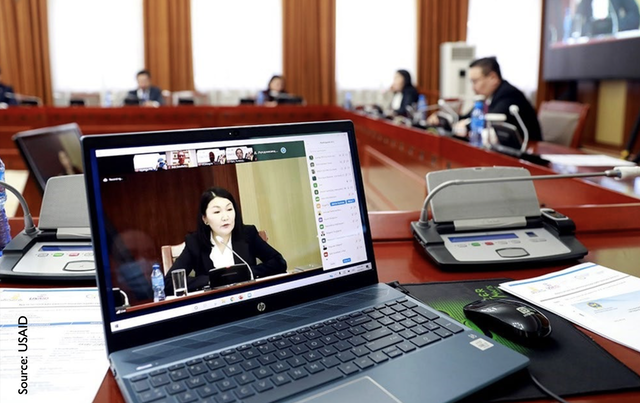
Why Governments Deploy ICT4D Projects
Governments use digital services to increase constituent services by improving efficiency, communication, accessibility, transparency, decision-making, and innovation. This strategic integration of e-Government technology helps governments enhance their operations and better serve their constituents.
Governments use e-government programs and digital services to increase constituent services for several reasons:
- Improved efficiency and productivity: E-government programs can streamline administrative processes, reduce paperwork, and save time and money, ultimately leading to more efficient and productive government operations.
- Better communication and accessibility: E-government programs facilitate better communication between governments and citizens, creating a more open market and a stronger economy. By digitizing government services and information, e-government can increase accessibility to public services and improve the overall customer experience.
- Increased transparency and accountability: E-government can improve government transparency by allowing the public to be informed about what the government is doing. This creates a more informed and engaged citizenry, which can lead to increased trust in government.
- Enhanced decision-making and resource allocation: By leveraging data and information collected through e-government programs, governments can make more informed decisions and allocate resources more effectively, resulting in better program outcomes and better support for constituents.
- Improved constituent experience: E-government programs can provide personalized experiences to constituents by collecting, unifying, and activating data to draw meaningful insights and provide proactive solutions to their needs.
- Promotion of innovation and collaboration: By utilizing e-government programs, governments can foster collaboration and promote innovation among stakeholders, leading to the development of more innovative and sustainable solutions.
We Should Move From Digital Development to Digital Transformation
At the recent event exploring How Mobile Phones are Catalyzing an African Revolution, I was excited to hear Christopher Burns expanding on the idea that we are...
10 Ethical Use Principles for Artificial Intelligence in the UN System
Artificial intelligence has profound and dynamic positive and negative impacts on societies, the environment, ecosystems and human lives, including the human mind,...
4 Considerations When Developing ICT Policies and Regulations
In a world dominated by rapid innovation, ICTs are not only accelerators for economic growth, they also provide on ramps for vulnerable populations to participate...
Introducing the USAID Digital Government Model
The role of digital technology across sectors has become undeniable in recent years and it has transformed most aspects of public and private life, including government....
The Benefits of Central Bank Digital Currencies for African Countries
The evolution of money and payment systems delivers is creating new opportunities and business models alongside new challenges. As economies are becoming more digital,...
Introducing the 6 Principles for Subnational Data Use for Development
Calls for more inclusive development activity, aligned with the 2030 Sustainable Development Goals (SDGs) and an increasingly complex set of development actors...
How Bangladesh Successfully Deployed DHIS2 Information System Nationwide
Ten years ago, Bangladesh’s health information system was paper-based and built in a disorganised manner around the unique needs of different programmes and...
6 African Governments Are Conducting Illegal Digital Surveillance of Citizens
The right to privacy and to private communications is a fundamental human right that is enshrined in African constitutions, international human rights conventions...
Mapping Trends in African Government Internet Freedom Restrictions
Internet freedom in Africa has been on the decline over the past years with several countries continually adopting aggressive and sophisticated measures that...
7 National Digital Identity Recommendations for 10 African Countries
Efforts to establish or improve national identification systems in Africa have coincided with the increasing deployment of mobile technology. This has led to the...











